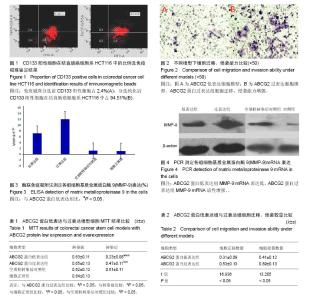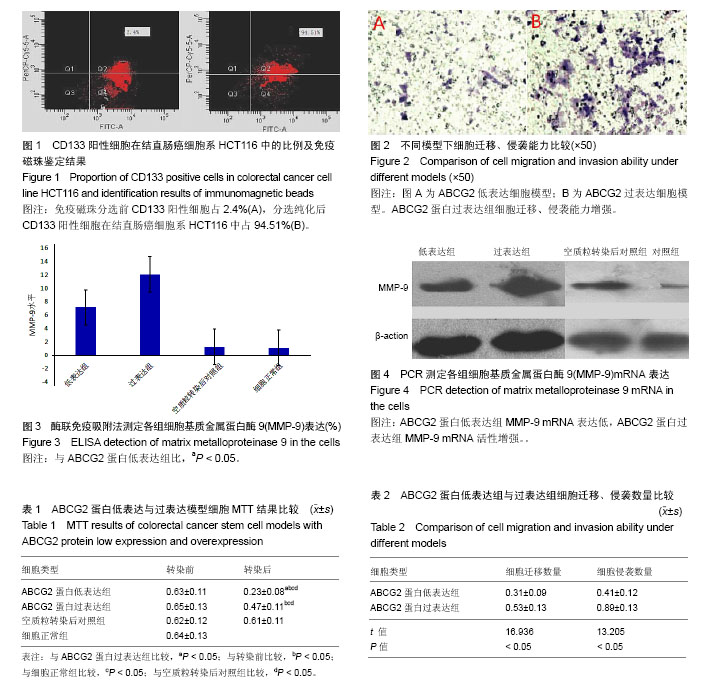| [1] Crespo M,Vilar E,Tsai SY,et al. Colonic organoids derived from human induced pluripotent stem cells for modeling colorectal cancer and drug testing. Nat Med. 2017;23(7): 878-884.[2] 郭显智,叶小磊,车晓航,等.沉默泡膜蛋白1对SW480细胞增殖与侵袭影响的研究[J].中华肿瘤防治杂志,2016,23(3): 151-158.[3] 阎立昆,李伟,姚建锋,等.miR-1231对结肠癌干细胞增殖、凋亡和侵袭的影响[J].中国组织工程研究,2016,20(45): 6746-6752.[4] Planutis AK, Holcombe RF, Planoutene MV,et al.SW480 colorectal cancer cells that naturally express Lgr5 are more sensitive to the most common chemotherapeutic agents than Lgr5-negative SW480 cells.Anticancer Drugs. 2015; 26(9):942-947.[5] 林志群,赵大川,陈飞,等.AT模体结合因子1对结直肠癌LOVO细胞增殖侵袭的影响[J].肿瘤防治研究,2016,43(4):267-271.[6] 张欢乐,张凤春,王萍,等.结直肠癌干细胞微球体的培养及耐药机制[J].肿瘤,2016,36(2):140-148.[7] Kim MJ, Koo JE, Han GY,et al.Dual-Blocking of PI3K and mTOR Improves Chemotherapeutic Effects on SW620 Human Colorectal Cancer Stem Cells by Inducing Differentiation.J Korean Med Sci. 2016;31(3):360-370.[8] 宋文,彭曼,段世玉,等.MIER3在结直肠癌中的表达及其相关蛋白的生物信息学分析[J].南方医科大学学报,2017,37(8): 1040-1046.[9] 谢玮,苏亚辉,冯勤,等.沉默PES1基因表达对结肠癌细胞恶性表型的抑制作用[J].肿瘤,2015,35(11):1175-1184.[10] Zhai H,Fesler A,Ju J. Abstract 3117: Hsa-miR-140-5p inhibits colorectal cancer stem cell invasion and metastasis by suppressing Smad2 and autophagy. Cancer Res.2015; 75(15 Supplement):3117-3117.[11] 韦巧玲,徐建江,WeiQiaoling,等.温度敏感性材料培养的脂肪源性干细胞作为眼表重建种子细胞的可行性研究[J].中华实验眼科杂志,2015,33(9):781-786.[12] 吕建美,何彦津,谢连凤,等.人泪腺腺样囊性癌肿瘤干细胞分离培养及特征研究[J].中华眼科杂志,2015,51(10):762-767.[13] 刘慧萍,林政桦,张国民,等.干细胞相关因子在大鼠卵巢颗粒细胞中的表达[J].中国组织工程研究,2015,19(1):78-84.[14] 王飞通,汪正伟,刘小云,等.维拉帕米对体内外胰腺癌SW1990细胞侵袭转移影响及其机制探讨[J].中华肿瘤防治杂志,2015, 22(1):39-44.[15] Hung CN, Chang CY,Hsiao J,et al. Abstract 1716: The role of CD44v9+ colorectal cancer stem cells in the resistance to cetuximab treatment. Cancer Res.2016;76(14 Supplement): 1716-1716.[16] 康新乐,李玉婷,王康,等.禾谷缢管蚜ABC转运蛋白基因的克隆、分子特性及表达分析[J].昆虫学报,2015,58(6):593-602.[17] 王晓虹,刘潜,马岚.体外培养乳腺癌肿瘤干细胞及其耐药相关性研究[J].云南大学学报:自然科学版,2016,38(6):989-996.[18] Sam MR, Ahangar P, Nejati V,et al.Treatment of LS174T colorectal cancer stem-like cells with n-3 PUFAs induces growth suppression through inhibition of survivin expression and induction of caspase-3 activation.Cell Oncol (Dordr). 2016;39(1):69-77.[19] 武瑞瑞,武夏芳,陈佳雯,等.慢性砷暴露对人皮肤角质形成细胞药物转运相关蛋白mRNA表达和砷代谢的影响[J].环境与健康杂志,2016,33(9):777-780.[20] 英舟,万义增,陈素贤.miR-138靶向调控PDK1基因抑制人结肠癌SW620细胞侵袭[J].肿瘤防治研究,2016,43(5):340-344.[21] Teo WH, Chen HP, Huang JC,et al.Human cytomegalovirus infection enhances cell proliferation, migration and upregulation of EMT markers in colorectal cancer-derived stem cell-like cells.Int J Oncol. 2017;51(5):1415-1426.[22] 王军成,邹有瑞,吴桥,等.大鼠增殖抑制基因过表达对C6胶质瘤细胞侵袭的抑制作用及其机制探讨[J].肿瘤,2017,37(2): 126-134.[23] 王园园,姜霞,肖兴春,等.MiR-101负性调节人结肠癌细胞HCT116增殖机制的研究[J].中国临床药理学杂志,2017, 33(15):1454-1456.[24] Wang Z, Tian A, Benchabane H,et al.The ADP-ribose polymerase Tankyrase regulates adult intestinal stem cell proliferation during homeostasis in Drosophila. Development. 2016;143(10):1710-1720.[25] 姚坤厚,马咏萍,胡军红,等.微小RNA542-3p与结直肠癌细胞侵袭转移能力的相关性研究[J].中国临床药理学杂志,2016, 32(14):1318-1321.[26] Qi F, Wei L, Shen A, et al.Pien Tze Huang inhibits the proliferation, and induces the apoptosis and differentiation of colorectal cancer stem cells via suppression of the Notch1 pathway.Oncol Rep. 2016;35(1):511-517.[27] 张亚琼,孙倩倩,娄欣欣,等.幽门螺杆菌感染相关miRNA-148b在胃癌细胞增殖及侵袭中的分子机制研究[J].中华医院感染学杂志,2017,27(10):2177-2182.[28] 庞翠,王金燕,胡志昊,等.负载肿瘤干细胞膜微粒的DC-CIK/ CTL细胞协同西妥昔单抗对结直肠癌细胞的杀伤作用及其机制[J].中国肿瘤生物治疗杂志,2016,23(6):751-758.[29] 李玉珍,钱昱,单彧,等.MicroRNA-150在结膜黏膜相关淋巴组织淋巴瘤增殖、迁移及侵袭中的作用[J].第二军医大学学报, 2017,38(6):727-733.[30] Jin Y, Ha N, Forés M,et al.EGFR/Ras Signaling Controls Drosophila Intestinal Stem Cell Proliferation via Capicua-Regulated Genes.PLoS Genet. 2015;11(12): e1005634. |

